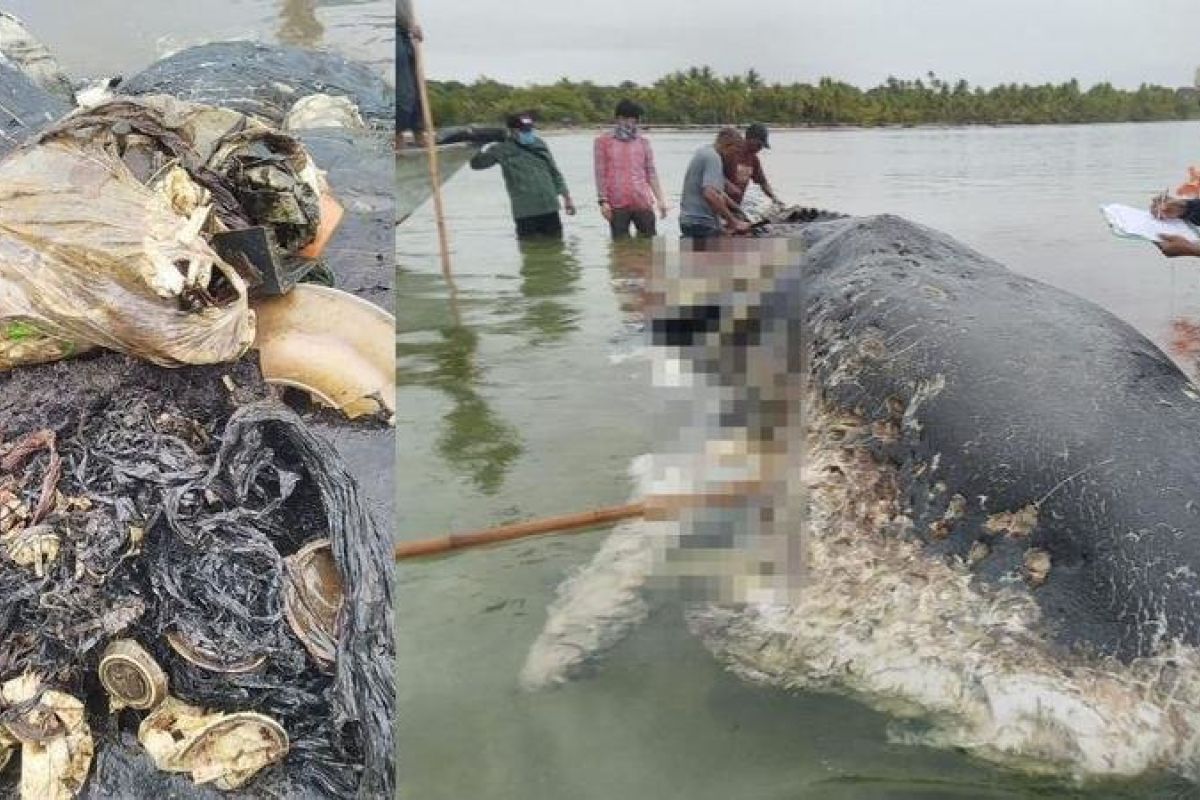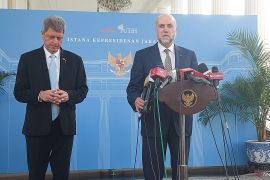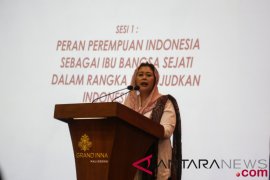Let us become serious in enforcing a ban on single-use plastic and comprehensively improve our waste management systemBogor, W Java (ANTARA) - A civil society coalition of 49 environmental groups, including the Indonesian Forum for the Environment (Walhi) and Greenpeace, launched a public awareness campaign highlighting the menace of single-use plastic bags by showcasing a plastic monster. The plastic monster was displayed to raise awareness among community members of the grave threat of marine debris akin to that posed by a dangerous monster.
Several people are as yet ignorant of the dangers posed to their lives by trash piles at sea, Chairperson of the Pandu Laut Nusantara (PLN), Prita Laura, said in Jakarta Saturday.
Therefore, the community members need to be made aware of the fact that their daily lifestyle had contributed to the plastic waste crisis. Laura cited as an example the habit of utilizing single-use plastic cups and plates for drinking and eating.
Echoing Laura's views, Founder of the Indonesia Plastic Bag Diet Movement (GIDKP) Tiza Mafira noted that single-use plastic bags resembled monsters as, despite the fact that they merely contributed 10 percent to Indonesia's total plastic waste, they had become a major contributor to marine debris.
Ironically, Laura cautioned that single-use plastic bags were made of materials that did not degrade for 100 years but were merely used for 30 minutes and then discarded.
As part of the civil society coalition's public awareness campaign, the participating environmental groups will not just demonstrate their stance by showcasing the plastic monster but they would also stage a peaceful rally in Central Jakarta Sunday, July 21, 2019.
The participating activists would march from Hotel Indonesia's Roundabout towards Jakarta's icon, the National Monument Square, while voicing their demand for the government to take firm action against plastic waste.
The Supreme Court (MA) announced that regional governments have the right to ban single-use plastic, Mafira stated.
"Let us become serious in enforcing a ban on single-use plastic and comprehensively improve our waste management system," she emphasized.
Plastic manufacturers were also urged to come up with new ways to make single-use plastic that is usable repeatedly, she revealed.
Global environment watchdogs, such as Greenpeace, have sent a clear message to multinational corporations in connection with the massive amounts of single use-plastic packaging they have produced.
Jen Fela's article titled, "Plastic monsters from around the world return home to Nestlé" that Greenpeace published on its website on April 24, 2019 revealed that the total amounts of plastic packaging that multinational companies annually use are huge.
Nestle, for instance, used 1.7 million tons of plastic packaging in 2018 (Fela, 2019). Therefore, the Greenpeace activists staged a peaceful rally in front of Nestle's headquarters in Switzerland on April 16, 2019.
As part of their action, they reportedly delivered "a 20-meter long plastic monster covered in Nestlé branded plastic packaging to the company's global headquarters" (Fela, 2019).
The use of plastic packaging is common in all countries, including Indonesia.
In terms of plastic bags, some 9.8 billion plastic bags are used in Indonesia every year, and almost 95 percent of it will end up as waste, Environment and Forestry Minister Siti Nurbaya has noted.
The total number of plastic straws used by Indonesians daily reaches some 93 million, rising from nine percent in 1995 to 16 percent in 2018, the ministry's waste management directorate has estimated.
Indeed, the menace of marine debris has continued to plague Indonesia over the past decades. Last year, the country was witness to a grim reality, with the recent death of a sperm whale who ingested almost six kilograms of plastic waste.
The news of the ill-fated sperm whale (Physeter macrocephalus), whose carcass washed ashore on Kapota Isle, Wakatobi District, Southeast Sulawesi Province, on November 19, 2018, had grabbed the attention of several mainstream media organizations within and outside the country.
Related news: News focus - Rising environmental concern over plastic waste polluting Indonesian seas
This environmental tragedy, widely published and broadcast by the world's reputable news media, such as Associated Press, CNN, The Guardian, and National Geographic, is a glaring reminder of the fact that plastic waste has become a serious menace for Indonesia.
Considering the grave threats of marine debris, Maritime Affairs and Fisheries Minister Susi Pudjiastuti opined that if the acts of littering and polluting the oceans continued, marine debris was likely to outnumber the fish at sea by 2030.
"Therefore, I call on the people to reduce the use of plastic bags and to stop littering," she told the residents of Banyuwangi District in East Java Province, when visiting in Tembokrejo Village of the Muncar Port area on April 4, 2019.
Speaking to the local residents during her visit to observe a community-based waste management in Tembokrejo Village, Pudjiastuti said the capacity of the temporary dumpsite in the village needed to be increased.
The villagers also needed to be trained on how to separate organic and inorganic waste in order to involve more people in managing it.
Pudjiastuti appreciated the implementation of waste management in Muncar subdistrict's coastal areas, which saw the involvement of several thousand local residents.
Previously she would avoid the area as it reeked. Thanks to the Bunyuwangi District head, who persuaded her to return, she could spot visible differences, she said citing the Muncar Port in Banyuwangi District as an example.
The area no longer smelled of garbage as its temporary dumpsite was well managed by local residents assisted by the district government and an NGO, funded by Norway and Austria, she said.
"This is a good example of how local governments can play a role. I hope this way of handling waste will be imitated by other villages," Pudjiastuti said. (INE)
Related news: 1,048 people to join anti-plastic parade
Related news: Indonesian minister draws attention to dangers of plastic waste
EDITED BY INE
Editor: Fardah Assegaf
Copyright © ANTARA 2019












